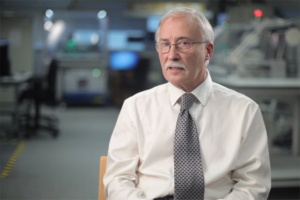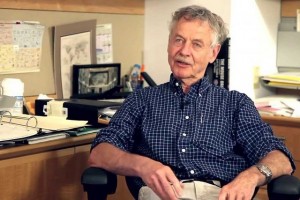Metabolic Phenotyping in Health and Disease
Biochemist Ian Wilson on the interaction between genotype and phenotype, prediction of metabolic disease, and ...
Is current investment in genomic research worthwhile? Are we missing scientific opportunities by focusing heavily on genetics? Professor of the Culture of Medicine at Harvard Medical School, David S. Jones, on the seeming reliance on genetic research.
The 20th century was the century of physics. The 21st century, people say, is the century of genomics. So, one question that comes up for historians of medicine is why has this happened, and how likely is it that genetic science will have the huge pay-off that everyone wants it to have.
A question that comes up from the point of view of science policy and health policy is: given the range of factors that influence these diseases, where should we be investing our resources now? If you really want to understand obesity or diabetes, is the solution going to come from these massive multi-million dollar investments in gene sequencing, trying to understand the genetics of these diseases. Or could you get a higher return on your investment by hiring a bunch of anthropologists or sociologists or others, to study what is actually accounting for the changing rates of these diseases over short time frames. The types of time frames that probably do not involve genetic change.
So as important as it is to continue the course of medical research, to push the frontier of medical knowledge, we need equally enthusiastic efforts at a much more mundane problem, a problem of delivery, the problem of behavior change, that will allow us to take full advantage of the fruits of all the progress that we’ve made over the past century. If we fully implemented everything that we know now, regardless of what we discover in the future, if we just use what we know now, the world could be a much healthier and longer-lived place.

Biochemist Ian Wilson on the interaction between genotype and phenotype, prediction of metabolic disease, and ...

A patient was implanted 3D-printed artificial ribs made of titanium

Biologist Rudolf Jaenisch on invention of IPS cells, the epigenetic state of the genes, and making a liver in ...